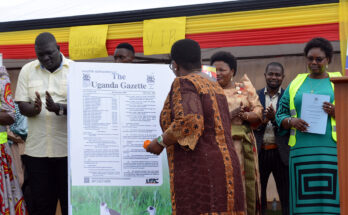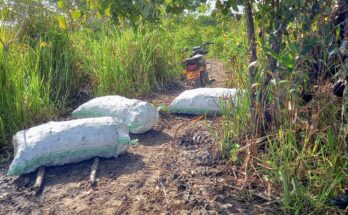For Africa to rapidly move from fossil fuel dependence and have a “genuine” energy transition, the continent needs to shift away from outdated models to modern, integrated energy solutions that can take advantage of its massive renewable energy potential, a new Just Transition report says, adding that Africa’s development programs would be “accessible, affordable, reliable” and “energy sustainable”.
The report titled “Just Transition a climate, energy and development vision for Africa” and co-authored by a collective of independent experts, with funding support from Climate Breakthrough Award and a Rockefeller Brothers Fund grant, analyses that Africa’s mineral abundance would collaboratively bolster more development programs operating on renewable energy.
“…around 600 million Africans currently lack access to electricity as an overriding priority for development,” the report says, but “Africa’s right to development would be better served through renewable systems that can achieve universal access, enable food security and regional industrialization, while advancing African and global climate goals”.
Take the East African community for instance. Member countries such as Tanzania, Kenya, Uganda, Rwanda, and South Sudan and Burundi combined hold a considerable deposit for minerals such as lithium, graphite, and cobalt, which are the raw materials that fuel green energy – or build clean energy infrastructure like turbines, solar panels, energy grids.
As demand for critical “green minerals” continue to soar, a low carbon future is highly expected to be mineral-intensive, experts say, adding that their annual production is estimated to increase by up to 500 percent compared to today if global warming is to be limited to below two degrees by 2050.
“The global race to become leaders in renewable energy is about to explode and the African people can benefit from this abundant and increasingly cheap form of power,” says Mohamed Adow, Power Shift Africa Director.
“To be able to capitalize on this opportunity, however, African leaders must take a Pan-African approach by working together. Other countries are mobilising resources to push forward support for green industries…”.

Indeed, putting up renewable infrastructural systems would ease energy transition, the report further states, but it would also require setting up a robust funding system since there is a “dominant narrative that Africa lacks the resources” which forces the second largest continent to borrow more yet it has the potential to fund the transition using domestic and international sources.
“African governments have a range of tools at hand to enhance the generation of domestic resources over time. One is to address the lack of productive capacity — such as skilled labour, technical know-how, and capital equipment— to begin scaling up domestic production without adding to the need for external inputs and debt,” the report advises.
African states can also push for the “creation of more accountable markets and institutions by addressing market concentration and abusive practices that misallocate resources and corrupt institutions,” the report adds.
The report further highlights a plethora of more potential funding solutions by suggesting that African countries can as well “scale-up of finance through existing mechanisms such as multilateral climate funds, reducing external indebtedness, initiating new measures such as global programs to support renewable energy deployment, and deploying innovative financial sources such as financial transaction taxes”.
As millions of Africans face a myriad of challenges, poverty remains a major sticking point. In fact, 24 of the 36 “heavily indebted countries’ are found in Africa. Other major social ills that continue to cripple the quality of life in Africa range from unemployment, inadequate health services, and disproportionate burdens women face while continuing to carry the main responsibilities for keeping families and communities together.
And these “development challenges”, increasingly, are exacerbated by climate change, the report adds, and yet “Africa’s contribution to carbon dioxide emissions amounts to less than 4%”.
‘‘Due to their high dependence on agroecosystems for livelihoods and inadequate infrastructure, communities across Africa are vulnerable to climate shocks and stresses,” says Meron Tesfamichael from University College London.
“Building resilience and meeting these challenges depends on countries’ ability to strengthen their food and energy systems and to promote an inclusive and equitable development path. However, this demands countries projecting a vision of a just transition that is pro-people and built on the principles of social justice.’’
Beware of bad renewables
Despite that, the report cautions Africa against using “bad renewables” to address its challenges since they are not people-centred, citing environmental destruction and human rights abuses from activities such as mining and displacing people in order to deploy renewable energy such as large wind farms.




